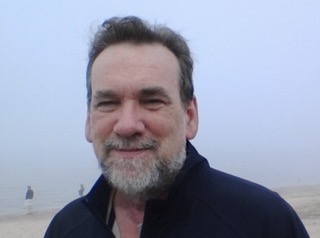“True Detective: Night Country” Writer/Director Issa López Delivers a Chilling New Season
Issa López loves to challenge herself. The writer/director, best known for the mystical 2017 feature Tigers Are Not Afraid, believes your comfort zone is the last place to find stories worth telling.
“If you’re not terrified, you’re not doing it right,” López says during a recent Zoom interview. “There are massive fears that you face as a filmmaker. You need to just do it. With the right team, you can go out and do anything.”
Perhaps nothing proves this better than True Detective: Night Country, López’s latest effort. As the writer/director of the acclaimed HBO crime anthology’s fourth season, López crafts a story that is both literally and physically chilling.
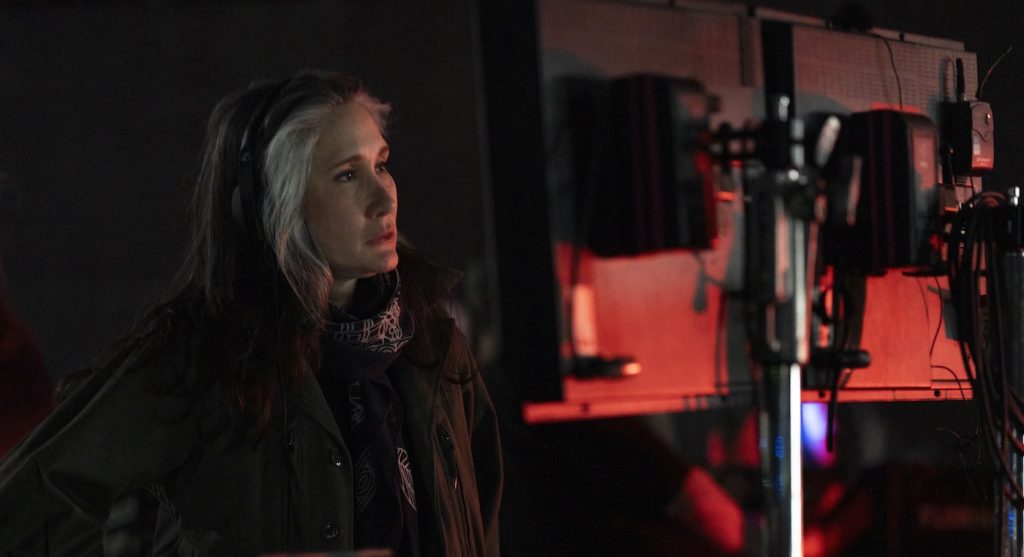
Set in the fictional Alaskan town of Ennis, Night Country takes place during December when the sun goes into hiding and darkness fills the days. The eerie mystery with haunting overtones begins when a team of research scientists vanishes without a trace from their isolated, hi-tech facility. An investigation by Chief of Police Elizabeth Danvers (Jodie Foster) soon finds the men in the desolate tundra, naked and frozen to death in a giant ball of ice.
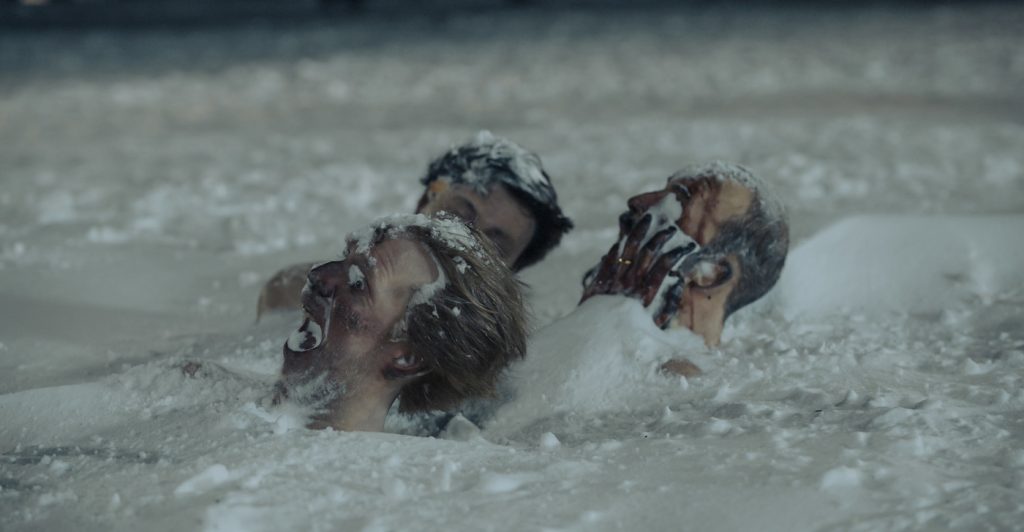
A cryptic clue leads Danvers to believe these deaths are linked to the recent unsolved murder of an indigenous townswoman. The discovery prompts Danvers to reunite with her former partner, Evangeline Navarro (Kali Reis). Navarro’s obsession with finding the young woman’s killer led to her demotion from detective to patrolwoman, causing a rift between the two women. Now, Danvers and Navarro must put aside their differences to unravel the new mystery as they also confront their own personal demons.
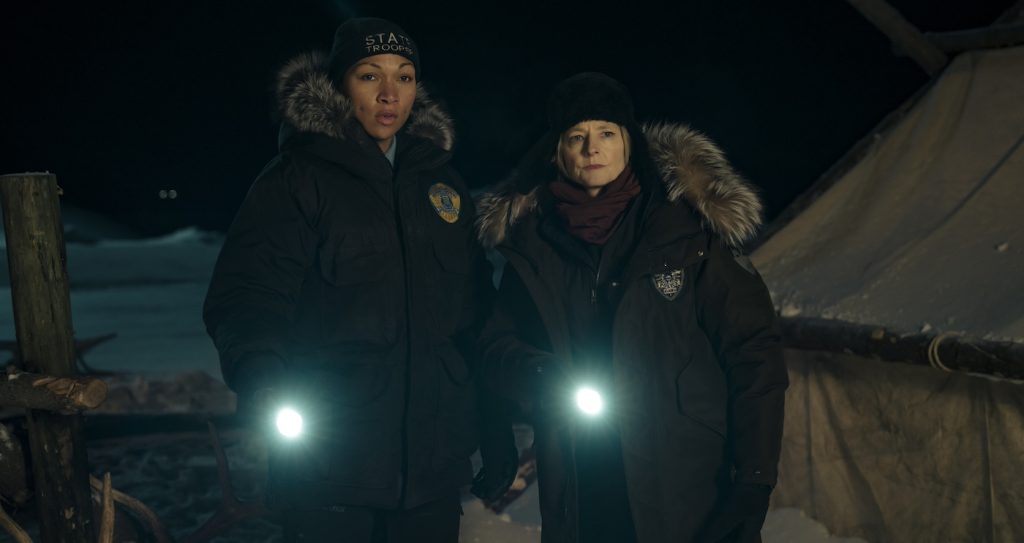
True Detective: Night Country first took root during the pandemic. Inspired by the puzzle craze that was sweeping the nation, López decided to create her own puzzle. And that raised fear number one.
“I had never written a WhoDunit, but I love, love them,” says López. “It always felt that they were beyond my capabilities. I felt I needed training to do its very strange structure. But I decided to challenge myself. I thought that good noir is about where it happens. I thought about the Arctic. What would happen if the WhoDunit is in the ice and the environment of a small town?”
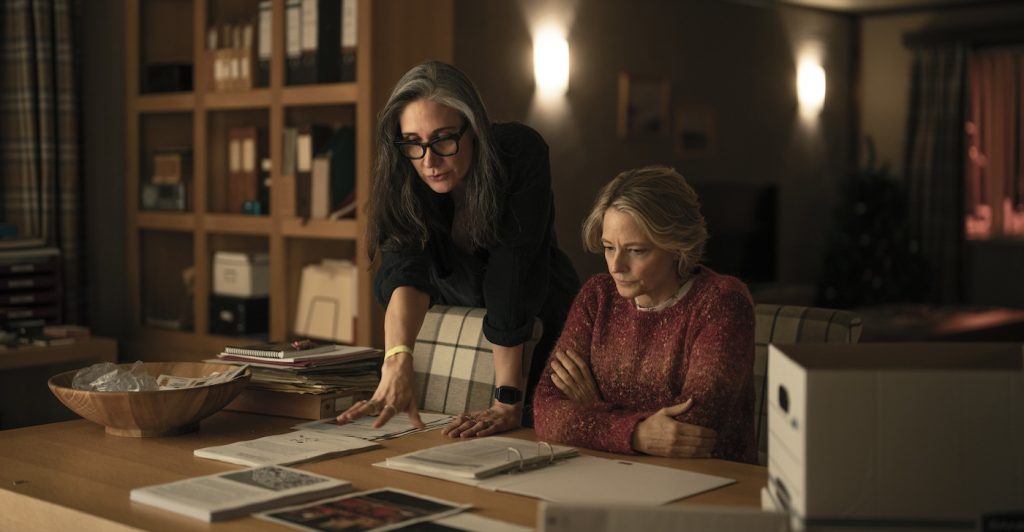
Serendipitously, while López was deep in noir thought, a call came from HBO. The True Detective team was curious as to how she might approach the series’ fourth season.
“I said, ‘Funny you should ask,’” López remembers. “It was the perfect joining of two worlds. What makes True Detective so impactful is two very complex characters with a backdrop of a corner of America that itself becomes the third character. My idea was evolving towards a True Detective story.”
Having spent most of her career in the feature realm, López relished the opportunity to work within a six-episode structure. It allowed her to explore multiple subjects wrapped around a True Detective-worthy mystery.
“I am the type of filmmaker that puts in a lot of things. Sometimes it’s a lot for a movie to carry,” continues López. “But when you have six hours to expand your world, you can really layer it up. You can talk about the Arctic, about small-town America, about being a woman in a male world, about loss and loneliness. You can explore indigenous voices. Seventy percent of the population is indigenous. You can’t create a story and not deal with it. So I started putting it all together and let it brew.”
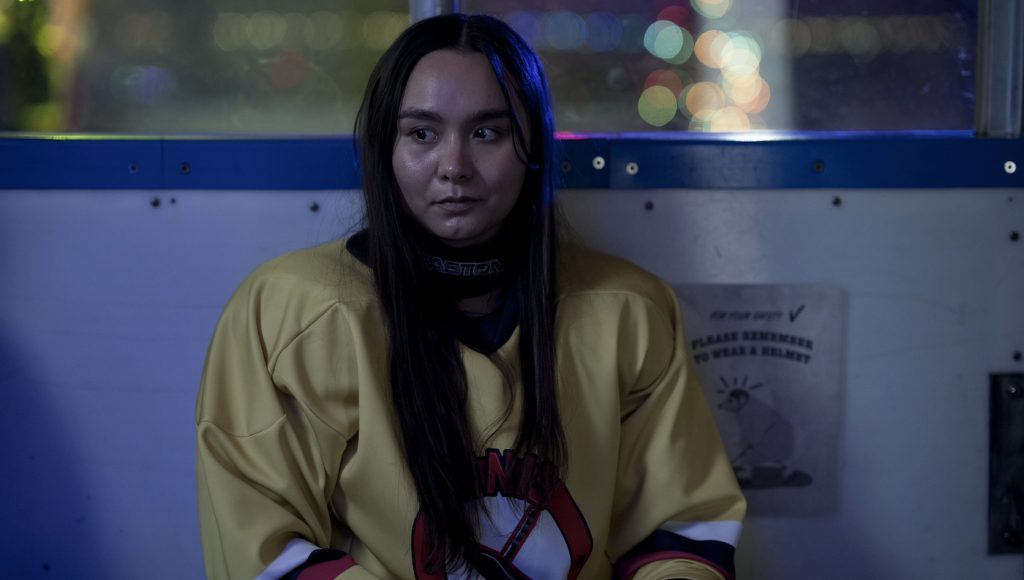
Crafting the script was only one obstacle. Directing Night Country presented a challenge all its own.
“It was freezing,” exclaims López regarding the shoot that took place in Iceland over 120 days, including 49 consecutive nights of filming. “Some nights we would be shooting in -23 Celsius…conditions that I never imagined being out in — forget about shooting a show.”
Wisely, López took to heart the advice of her Icelandic hosts when they told her there wasn’t bad weather, just bad clothing. Everyone dressed accordingly. Though she jokingly cursed the writer who put them in these frigid conditions, she knew her instincts were right.
“I wouldn’t change it for anything,” explains López. “The way that the cold, the wind, the snow in our lashes informed the series. The actor’s breath, the spirit, the taste, everything about it – we would have never been able to make you feel cold in your living room if we hadn’t shot there. It was so worth it.”
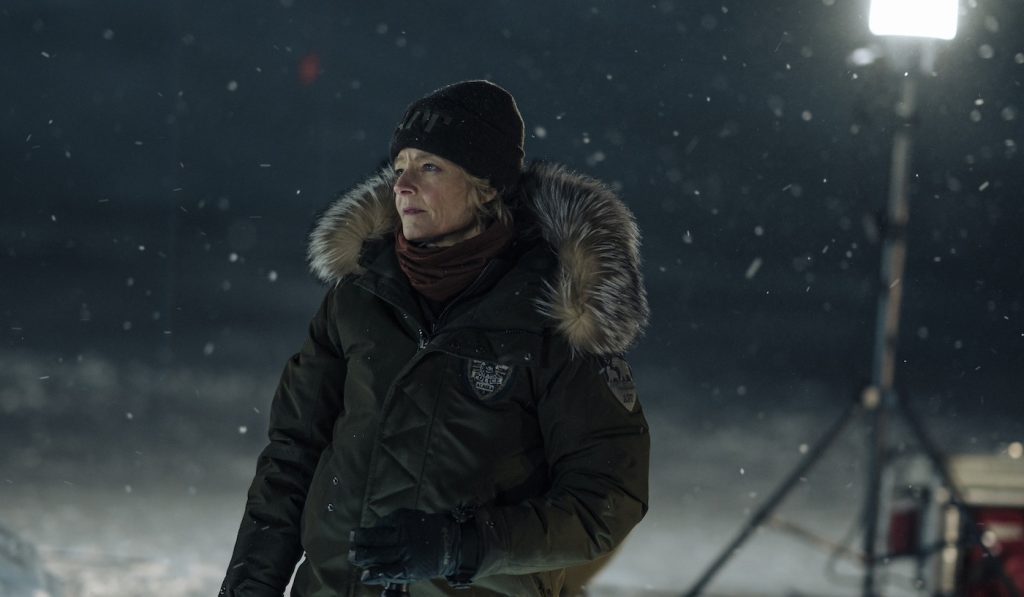
Determined to take full advantage of the location, López and Night Country cinematographer Florian Hoffmeister (who received an Academy Award nomination for Tár while filming) decided that rather than fight the dark, they would pinpoint the exact images of a scene and envelop them in darkness. The idea was to have the viewer inhabit the experience.
“You would watch this, and it would feel eerie — that there is more than what you can see,” explains López. “Which is the whole point of the darkness. It holds things you can’t see.”
As an example, López cites a scene where Navarro is wandering through a snowstorm searching for a suspect. The only light is the beam illuminating from the flashlight on her forehead. “You cannot see anything but a little bit of her eyes under the headlight and wherever it falls,” she adds. “Navarro throws an orange away, and then it comes back from the dark. It was so nice to see it happen.”
An added bonus was the natural lighting nature provided. “We had the northern lights every week,” says López. “I’ll remember that forever.”
Another plus was the depth that Foster and Reis brought to their characters. Foster’s character was initially written as a woman struggling to keep it together. Foster loved Night Country but didn’t feel a connection to Danvers. She suggested a more world-weary police chief. What if she were a wiseass with a short fuse and no patience for those around her?
“I listened to her, and I said, ‘Okay, so if I’m hearing correctly, you want me to make her into an asshole,’” López remembers. “She laughed and said, ‘Yeah.’ And I said, ‘I can do that. I love that.’”
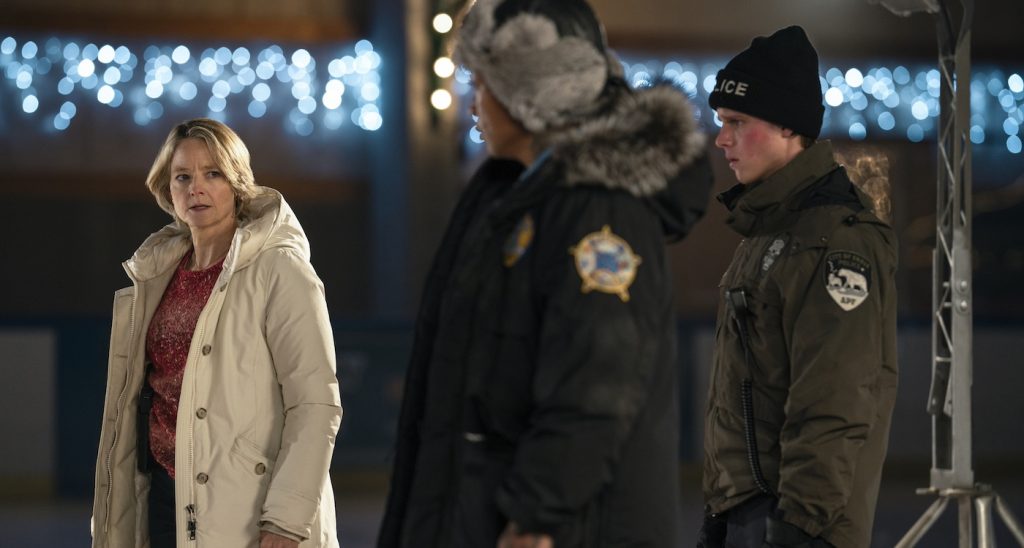
López envisioned Navarro as a tough kickass. She thought Reis, a professional boxer, would embody this. But upon meeting the actress, she sensed an opportunity for a kinder and more heartfelt Navarro. “She really became the opposite of Danvers. She feels and acts frontally and with honesty,” says the director.
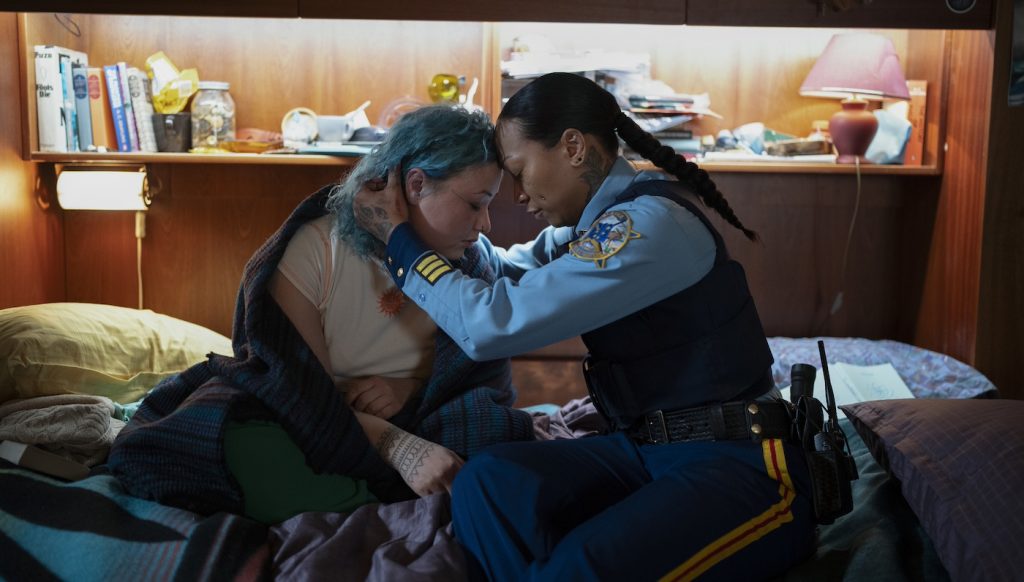
López reveled in taking the script’s initial ideas to another level during filming. Without giving away spoilers, she reveals a pivotal twist that came about exactly this way.
“There’s a crucial scene where a massive surprise happens,” says López. “I had rewritten it many times, and we had rehearsed it many times. And then we got to set, and Jodie said, “I don’t know if she would…’ And I was like, “Okay…” We threw the scene away, gathered the rest of the actors, and came up with such a strong, absolutely explosive scene. It happened right there, and it was intoxicating.”
López couldn’t be happier with True Detective: Night Country. But that said, it’s quite possible that she may choose a less taxing climate for her next project. As evidence, López points out that the coffee mug Danvers drinks from in the last scene sports a “Hawaii” logo. “It’s an inside joke about where my soul wants it to be,” she says with a laugh.
New episodes of True Detective: Night Country arrive on Max on Sunday evenings at 9 p.m. E.T.


